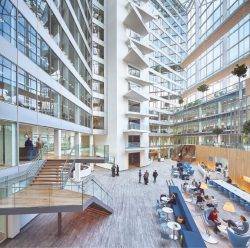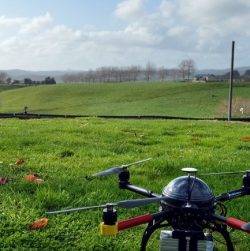February 6, 2018
HR teams are not sufficiently prepared to meet the fourth industrial revolution
 Most people who work in HR now recognise how essential technology is for delivering more strategic value to their organisation, but a new report suggests that HR teams are not prepared to meet the fourth industrial revolution. A survey from ADP and IDC across eight countries in Europe found that over a fifth (22 percent) of Human Capital Management (HCM) processes are still inputted manually. Equally alarming, was the lack of communication between HR teams and IT departments, with 28 percent of respondents claiming that IT is only somewhat involved in HCM solution decisions, and 3 percent claiming it plays no role at all. Yet despite a significant number of respondents revealing that IT departments are not closely aligned with HR, the research pointed towards a shift in the attitudes of HR experts. When asked which new technologies they find increasingly important, 68 percent said end-to-end integration of all HR and talent systems and 64 percent said HR dashboard and analytics were very or extremely important. What’s more, 56 percent said social or collaborative features were also very important.
Most people who work in HR now recognise how essential technology is for delivering more strategic value to their organisation, but a new report suggests that HR teams are not prepared to meet the fourth industrial revolution. A survey from ADP and IDC across eight countries in Europe found that over a fifth (22 percent) of Human Capital Management (HCM) processes are still inputted manually. Equally alarming, was the lack of communication between HR teams and IT departments, with 28 percent of respondents claiming that IT is only somewhat involved in HCM solution decisions, and 3 percent claiming it plays no role at all. Yet despite a significant number of respondents revealing that IT departments are not closely aligned with HR, the research pointed towards a shift in the attitudes of HR experts. When asked which new technologies they find increasingly important, 68 percent said end-to-end integration of all HR and talent systems and 64 percent said HR dashboard and analytics were very or extremely important. What’s more, 56 percent said social or collaborative features were also very important.








 Over half of UK workers (53 percent) say that the standard of technology is a key consideration for accepting a new job role and more than 1 in 3 (37 percent) would decline a job based on poor hardware alone, claims a new survey. The survey of over 2,000 British adults carried out by gadgets and technology e-tailer, LaptopsDirect.co.uk found that having the latest technology was valued more than other office perks, such as flexible working (45 percent), the working environment/decor (39 percent) and staff discounts (33 percent). Nearly a quarter of respondents (74 percent) overall, believe technology makes them more productive at work, with workers in marketing valuing technology the highest, with 84 percent of the votes, followed by those in creative and photographic (81 percent), information and communications (78 percent), professional services (73 percent) and education (71 percent).
Over half of UK workers (53 percent) say that the standard of technology is a key consideration for accepting a new job role and more than 1 in 3 (37 percent) would decline a job based on poor hardware alone, claims a new survey. The survey of over 2,000 British adults carried out by gadgets and technology e-tailer, LaptopsDirect.co.uk found that having the latest technology was valued more than other office perks, such as flexible working (45 percent), the working environment/decor (39 percent) and staff discounts (33 percent). Nearly a quarter of respondents (74 percent) overall, believe technology makes them more productive at work, with workers in marketing valuing technology the highest, with 84 percent of the votes, followed by those in creative and photographic (81 percent), information and communications (78 percent), professional services (73 percent) and education (71 percent).
 The creative team behind the development of the world’s most sustainable building – The Edge in Amsterdam – has announced the launch of a real estate technology company. EDGE Technologies, launched by OVG Real Estate CEO Coen van Oostrom will focus on creating a new generation of buildings which feature the latest innovations in sustainability and wellbeing. Whereas parent company OVG is focussed exclusively on the development of its existing portfolio, EDGE Technologies will focus on both the development and the long-term operations of this new generation of buildings, aiming for a cohesive experience across cities. Each EDGE building will be built and operated on the same technology platform and offer consistent user-centred design, created to serve the needs of today’s fast-changing and demanding workforce. To help achieve this the new company is launching a product that will capture and aggregate data across its properties in order to optimize, measure and inform both the user experience and the building’s environmental performance.
The creative team behind the development of the world’s most sustainable building – The Edge in Amsterdam – has announced the launch of a real estate technology company. EDGE Technologies, launched by OVG Real Estate CEO Coen van Oostrom will focus on creating a new generation of buildings which feature the latest innovations in sustainability and wellbeing. Whereas parent company OVG is focussed exclusively on the development of its existing portfolio, EDGE Technologies will focus on both the development and the long-term operations of this new generation of buildings, aiming for a cohesive experience across cities. Each EDGE building will be built and operated on the same technology platform and offer consistent user-centred design, created to serve the needs of today’s fast-changing and demanding workforce. To help achieve this the new company is launching a product that will capture and aggregate data across its properties in order to optimize, measure and inform both the user experience and the building’s environmental performance. 
 If the Government is to deliver its plans of driving digital transformation to improve the UK’s public services it must make a step change in procurement within central government and the wider public sector. That is one of the main findings of
If the Government is to deliver its plans of driving digital transformation to improve the UK’s public services it must make a step change in procurement within central government and the wider public sector. That is one of the main findings of 


























January 30, 2018
Harnessing serendipity in the workplace is about more than facilitating the unexpected
by Ilkka Kakko • Comment, Technology, Workplace design
More →